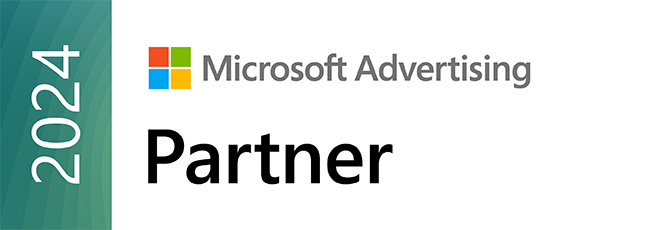AI & The Future of SEO: Implications for Nonprofits and Associations in Omnichannel Digital Marketing

Integrating generative AI into search algorithms reshapes how organizations approach SEO in a rapidly evolving digital landscape. Google’s latest advancements in AI, including the use of its custom Gemini model, bring significant changes to search capabilities. For nonprofits and associations, these changes present challenges and opportunities in omnichannel digital marketing. Here’s a deep dive into what these advancements mean and how to navigate this new terrain strategically.
Understanding AI-First Search Algorithms
AI-first search algorithms are designed to understand user intent more accurately, providing highly personalized and contextually relevant search results. Google’s Gemini model enhances search with multi-step reasoning, planning, and the ability to integrate various data sources.
Key features include:
- AI Overviews: Quick summaries and links for detailed exploration.
- Complex Queries: Handling nuanced questions in one go.
- Enhanced Planning: AI aids in creating customized plans.
- Video Search: Asking questions using videos.
These features enhance the search experience, making it more intuitive and user-friendly. This means adapting digital strategies to align with these AI-driven capabilities for nonprofits and associations.
Implications for Omnichannel Digital Marketing
1. Content Strategy and Creation
Nonprofits must focus on creating high-quality, relevant content that meets the needs of their audience. AI algorithms prioritize content that provides value and answers user queries effectively. This involves:
- Creating Comprehensive Content: Addressing complex topics thoroughly to improve search visibility.
- Utilizing AI Tools: Leveraging AI-powered tools for content creation, such as generating topic ideas and optimizing content for SEO.
2. Enhanced User Experience
AI-driven search algorithms emphasize user experience (UX). Ensuring websites are user-friendly, mobile-optimized, and fast-loading is crucial for nonprofits. Key aspects include:
- Website Performance: Ensuring fast load times and mobile responsiveness.
- User-Centric Design: Designing websites that are easy to navigate and visually appealing.
3. Voice and Visual Search Optimization
With the rise of voice assistants and visual search technologies, nonprofits need to optimize their content for these new search modes. This includes:
- Natural Language Processing (NLP): Writing content that mimics natural speech patterns for voice search.
- Schema Markup: Implementing structured data to enhance search engine understanding of content.
4. Real-Time Adjustments and Agile Marketing
AI allows for real-time adjustments based on user behavior and search trends. Nonprofits should adopt agile marketing practices to stay responsive to these changes:
- Dynamic Content Updates: Regularly updating content based on current trends and user feedback.
- Data-Driven Decisions: Using analytics to inform marketing strategies and track performance.
5. Technical SEO
Technical SEO remains critical in an AI-first world. Ensuring that websites are technically sound will help nonprofits maintain search visibility:
- Site Performance: Prioritizing site speed, mobile-friendliness, and secure connections.
- Structured Data: Using schema markup to provide context to search engines.
Opportunities for Nonprofits and Associations
1. Increased Visibility and Engagement
Generative AI enhances the ability to answer complex queries and provide personalized experiences. For nonprofits, this can lead to increased visibility and engagement:
- Personalized Content: Delivering tailored content that resonates with specific audience segments.
- Engagement Tools: Using AI to create interactive content, such as chatbots and virtual assistants.
2. Better Audience Insights
AI-powered analytics provide deeper insights into audience behaviour and preferences. Nonprofits can use these insights to refine their strategies:
- Targeted Campaigns: Creating campaigns that are tailored to the interests and needs of different audience segments.
- Impact Measurement: Using AI tools to measure the impact of campaigns and adjust strategies accordingly.
3. Efficient Resource Management
AI can automate various marketing tasks, allowing nonprofits to focus their resources on high-impact activities:
- Automation Tools: Using AI to automate email marketing, social media management, and content scheduling.
- Resource Allocation: Optimizing the allocation of resources based on data-driven insights.
Challenges and Considerations
1. Staying Updated with AI Trends
The rapid pace of AI development requires nonprofits to stay updated with the latest trends and technologies. This involves continuous learning and adaptation:
- Training and Development: Investing in training for staff to understand and leverage AI tools.
- Collaboration: Partnering with tech experts and consultants to implement AI-driven strategies.
2. Ethical Considerations
AI technology raises ethical considerations, particularly regarding data privacy and security. Nonprofits must ensure that they handle data responsibly:
- Data Privacy: Implementing robust data protection measures to safeguard user information.
- Transparency: Being transparent with users about how their data is used and ensuring compliance with regulations.
3. Balancing Automation and Personal Touch
While AI can enhance efficiency, it’s important to maintain a personal touch in interactions with supporters and beneficiaries:
- Personalization: Using AI to personalize interactions while retaining a human element.
- Community Engagement: Fostering genuine relationships with supporters through authentic communication.
Strategic Recommendations
1. Embrace AI-Driven Tools
Nonprofits should embrace AI-driven tools to enhance their marketing efforts. This includes tools for content creation, analytics, and automation:
- Content Optimization**: Using AI tools to optimize content for search engines and user engagement.
- Analytics Platforms: Leveraging AI-powered analytics platforms to gain insights into audience behaviour.
2. Focus on High-Quality Content
Creating high-quality, relevant content remains a cornerstone of effective SEO. Nonprofits should focus on producing content that addresses the needs and interests of their audience:
- Content Strategy: Develop a content strategy that aligns with organizational goals and audience needs.
- Continuous Improvement: Regularly updating and refining content based on user feedback and search trends.
3. Invest in Technical SEO
Ensuring that websites are technically sound is essential for maintaining search visibility. Nonprofits should invest in technical SEO to enhance site performance and user experience:
- Site Audits: Conducting regular site audits to identify and fix technical issues.
- Mobile Optimization: Ensuring that websites are optimized for mobile devices.
4. Adapt to New Search Behaviors
As search behaviours evolve, nonprofits must adapt strategies to meet these changes. This includes optimizing for voice and visual search and staying responsive to user needs:
- Voice Search Optimization: Creating content that is optimized for voice search queries.
- Visual Content: Incorporating visual content, such as images and videos, into marketing strategies.
5. Monitor and Measure the Impact
Using AI-powered tools to monitor and measure the impact of marketing efforts is crucial for continuous improvement:
- Analytics and Reporting: Using analytics to track campaigns’ performance and identify improvement areas.
- Impact Assessment: Regularly assessing the impact of marketing efforts on organizational goals.
FAQ
1: How can nonprofits leverage AI in their SEO strategies?
Nonprofits can leverage AI by using AI-driven tools for content creation, optimization, and analytics. This helps produce high-quality, relevant content that meets user needs and improves search visibility.
2: What are AI overviews, and how do they benefit nonprofits?
AI overviews provide quick summaries and links for deeper exploration. This means enhanced visibility and engagement for nonprofits, as users can quickly access relevant information.
3: How important is technical SEO in an AI-first search environment?
Technical SEO is crucial, as it ensures that websites are fast, mobile-friendly, and secure. This helps maintain search visibility and enhances user experience, which AI-driven algorithms prioritise.
4: What role do voice and visual search play in SEO?
Voice and visual search are becoming increasingly important. Nonprofits should optimize their content for natural language queries and use schema markup to enhance visual search capabilities.
5: How can nonprofits measure the impact of their AI-driven marketing efforts?
Using AI-powered analytics tools, nonprofits can track campaign performance, gain insights into audience behaviour, and adjust strategies based on data-driven decisions.
6: What ethical considerations should nonprofits keep in mind when using AI?
Nonprofits should ensure data privacy and transparency, implementing robust data protection measures and being clear about user data use.
For more insights, visit Google’s official blog post.
Reach out to Kabloom, the ROI Agency
A thought-leadership piece written by the CEO of Kabloom, Richard Torriani.










